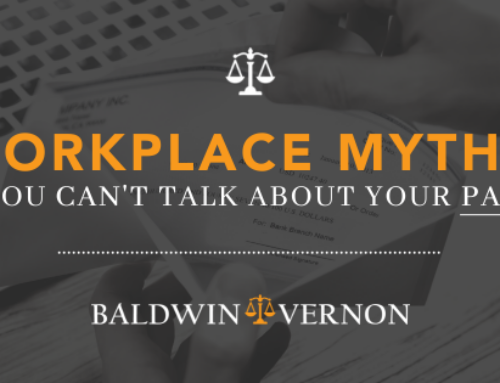The spotlight is often on discriminatory actions or harassment claims, but what about the unlawful repercussions of speaking up?
It is against the law for an employer to retaliate against, or punish, an employee for making a discrimination or harassment claim, or for participating in an investigation at their place of work.
According to the U.S. Equal Employment Opportunity Commission (EEOC), “it is unlawful to retaliate against applicants or employees for:
- filing or being a witness in an EEO charge, complaint, investigation, or lawsuit
- communicating with a supervisor or manager about employment discrimination, including harassment
- answering questions during an employer investigation of alleged harassment
- refusing to follow orders that would result in discrimination
- resisting sexual advances, or intervening to protect others
- requesting accommodation of a disability or for a religious practice or
- asking managers or co-workers about salary information to uncover potentially discriminatory wages.”
Retaliation was the most frequent charge in 2018
Retaliation might be more common than you think. According to the EEOC, retaliation was the most frequent charge filed with the agency in 2018, followed by sex, disability and race.
- Retaliation: 39,469 (51.6% of all charges filed)
- Sex: 24,655 (32.3%)
- Disability: 24,605 (32.2%)
- Race: 24,600 (32.2%)
What does retaliation look like?
It’s important to note that retaliation is not limited to obvious punishments such as firing. According to NPR, “sometimes people can be really creative about how they retaliate, because the goal is to not seem like you’re retaliating.” An employee can be demoted, denied a raise, looked over for a promotion, declined a transfer request, or not given special bonus, training, or mentoring opportunities. Workplace retaliation is not limited to these items and the retaliation that you experience may look different.
What if the claim turns out to be false?
If a claim regarding workplace discrimination or harassment was made in good faith, but turns out to be unfounded, the employee who made the claim is still protected under federal law against retaliation. No matter the final outcome, retaliation is still against the law.
What can you do?
If you believe that you are experiencing retaliation from your employer, document the details, and don’t wait too long to speak up. Contact a law firm like Baldwin & Vernon who will stand by your side to defend your rights.







